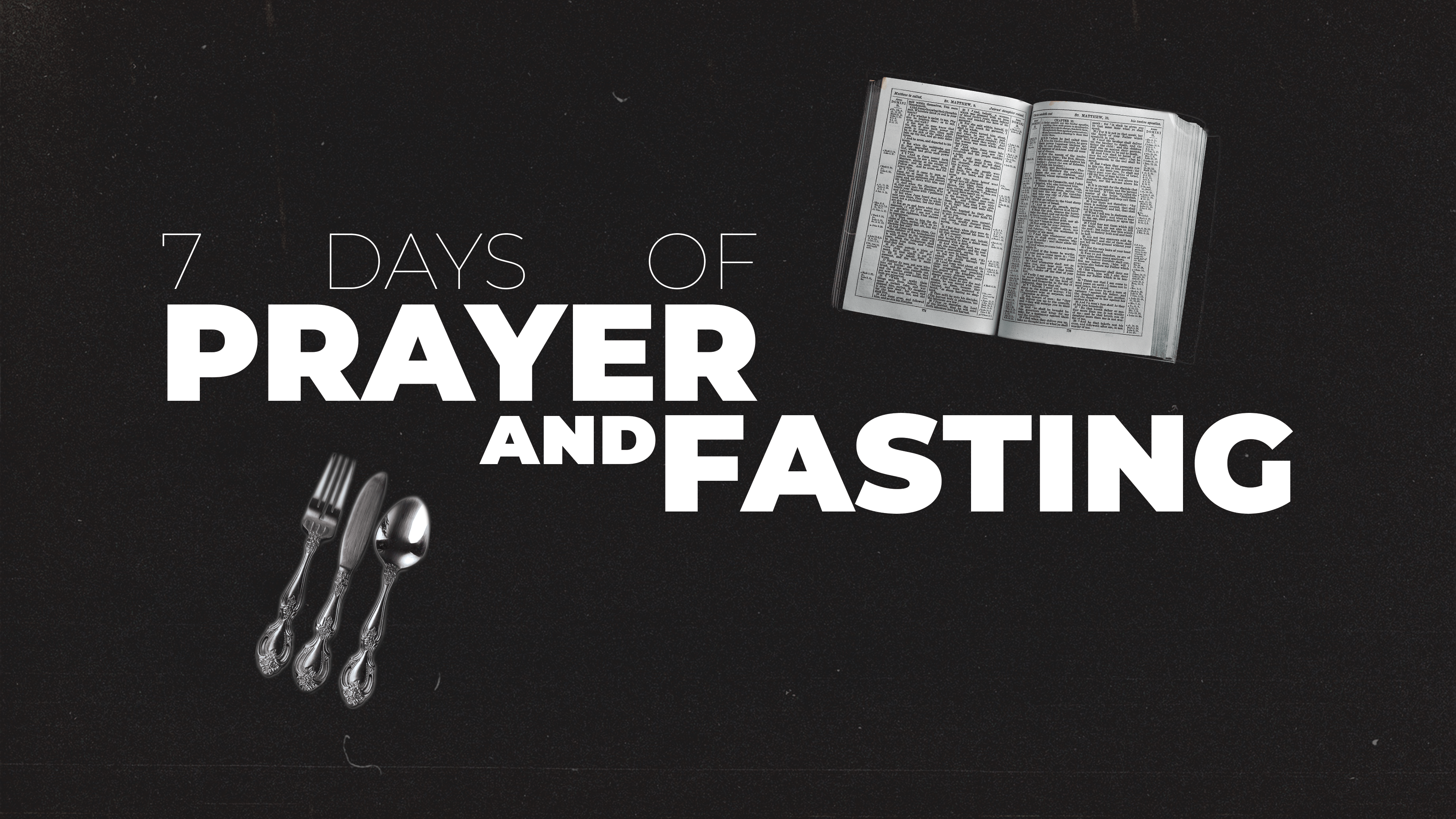
Prayer and Fasting
For the past five years, we have set aside 21 days every January to pray and fast together as a church community. During these 21 days, we intentionally created space to connect with God so that we could hear from him and do what he says.
In 2025, we’re going to do things differently. We’re still going to join together to pray and fast for 21 days; however this year, we’re going to spread these 21 days out over three weeks of prayer and fasting in January, May, and September. We’ll start each of these weeks with a Worship Experience on Sunday, join in a biblical fast for 7 days, and conclude with an All-Church Leadership Community on Saturday.
You can find a helpful resource for the entire family on our app under the connect tab!
We believe that these three focused times of prayer and fasting will be a powerful catalyst for spiritual growth in our lives and our church. They will help us develop a more regular and sustainable practice of biblical fasting, a practice that involves abstaining from regular patterns of eating and drinking.
Fasting is one of the oldest and most prevalent spiritual practices in the Bible. Great leaders in the Bible fasted routinely including Moses, David, Jeremiah, Isaiah, John the Baptist, Jesus and the disciples. In Matthew 6:16, Jesus addresses fasting when he tells the disciples, “When you fast…” Notice Jesus says “when” not “if.” Jesus assumes that we will fast. Though fasting is assumed, it is not required. We don’t have to fast. We get to fast. Like all intentional spiritual practices, fasting should not be legalistic. We are not earning approval from God through fasting. We are opening ourselves up to connect with him. We are creating space in our lives to hear from him so that we can do what he says.
There are several different ways you can practice biblical fasting. Here are some examples:
- Complete Fast - In this type of fast, you drink only liquids, typically water with light juices as an option.
- Selective Fast - This type of fast involves removing certain elements from your diet. One example of a selective fast is the “Daniel Fast,” during which you remove meat, sweets, and bread from your diet and consume water and juice for fluids and fruits and vegetables for food.
- Partial Fast - This fast is sometimes called the “Jewish Fast” and involves abstaining from eating any type of food in the morning and afternoon. This can either correlate to specific times of the day, such as 6:00 am to 3:00 pm, or from sunup to sundown.
Fasting goes hand-in-hand with prayer. Plan to set aside the time you would normally spend on meal preparation and eating for focused time with God.
Whichever type of fast you choose, you are invited to join us for our 2nd Week of Prayer and Fasting April 27th- May 3rd 2025. (Note: If you have a medical condition, consult your doctor before engaging in fasting.)
Leading up to and throughout the fast, consult the Community Daily on our app for fasting tips, Scripture reflections, and daily encouragement.